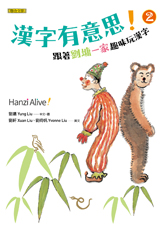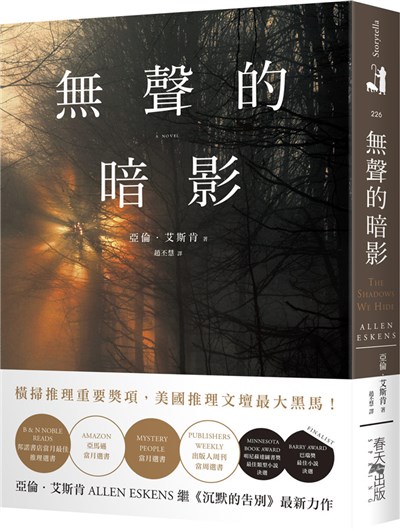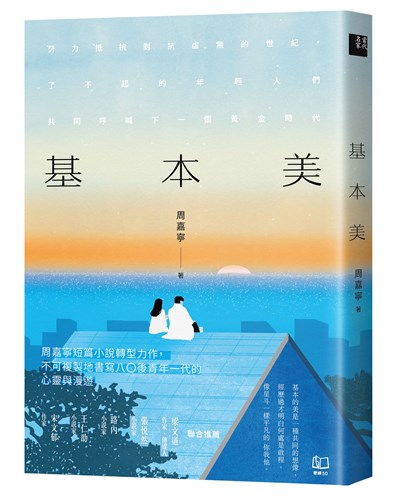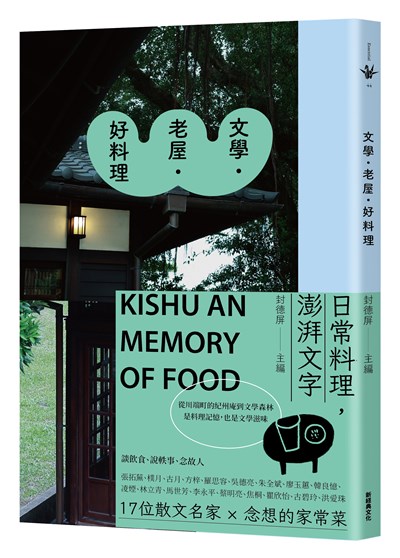
記得小時候剛開始認字時,總喜歡指著路邊可見的商家招牌、道路指引、石柱上的刻文、早餐店的菜單等等,學習好多不同的字。從生活中學會的,記憶才最深刻。書中的照片皆從日常生活而來,加上劉墉老師的繪字,讓孩子能透過圖像了解漢字的意義,不用硬背,即可自然學習。大人也可透過此書重新認識漢字,玩味漢字的有趣之處。
文章節錄
《漢字有意思!2:跟著劉墉一家趣味玩漢字(中英文對照)》
我們常能看見太陽已經出來了,月亮還沒落下去。把太陽和月亮放在一起,是不是也能表示早上呢?
可以!但是要表現太陽還在草裡,沒有完全升起,這就是「朝」字的由來。日本最大的報紙《朝日新聞》,就取了「朝」和「日」作報紙的名字,意思是每天早上出的報紙。
「朝」means “early morning” because at dawn, we can still see the moon while the sun is rising. So when you put the sun and moon together, can it also mean “dawn?” Yes! However, the sun must be shown to be in the grass because it has not yet fully risen. Japan's largest newspaper 《朝日新聞》 has the words 「朝」and「日」, meaning that it is a newspaper which comes out every morning.
學了「早」,你或許要問,傍晚該怎麼寫?
太陽西落時不是也落在草上嗎?與「早」有什麼不同呢?
中文字裡是有不同的,它不像「早」,把太陽畫在草上,而是畫在草當中,表示太陽落到草裡去了。後來的人不知為什麼,又加了一個太陽,成為今天的「暮」字。
After learning “morning”「早」, you might ask, “How do you write 'dusk'?”
When the sun sets, doesn't it set in the grass also? Then what is the difference between the two words?
Unlike「早」, where the sun rises over the grass, the sun in “dusk”「暮」has already set into the grass. Later, for reasons not known to us, another sun was added to make the current character for dusk:「暮」.
如果把一個中字放在心的正上方,意思是在心中、在心的最中心,也就是忠實忠心的意思。
漢字寫「心中」和「中心」,意思不一樣,「心中」是心裡面,「中心」是正中央。
If「中」is placed directly above a heart, it would mean “in the middle of the heart,” or in other words, “loyal and faithful.” When writing中and心as separate characters, the order of the characters makes a difference in the meaning; 「心中」means “in the heart,” while「中心」means “center.”
門打開,中間有個太陽,意思是「在當中」。這個「間」字可以形容位置,譬如「中間」;也可以形容時間,譬如「日間」。很早以前,門中間也可能是「月」,後來才確定用「日」。至於中間是月亮的「閒」則代表悠閒。
A sun「日」appearing in the middle of a set of doors 「門」means “in the middle of.”This character「間」can be used to describe a position, such as 「中間」 which means “middle.” It can also describe a time, such as 「日間」meaning “daytime.” Originally, a moon「月」between a set of doors can also mean “in the middle of,”but since then we have settled on「間」being the definitive version of this character. The moon version「閒」(pronounced xian2) has come to mean “leisure.”
有個人影在門口一閃,不見了,這個字是「閃」。「閃」是很快的意思,譬如「躲閃」、「閃電」。
This character 「閃」means “flash.” You can imagine it as a person appearing “in a flash” in the doorway. Some words made with閃include「躲閃」(to hide) and「閃電」(lightning).











